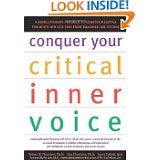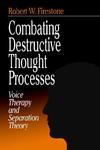Why Layoffs Lead to New Lows in Self-Esteem
…conflict in relation to our goals and aspirations in life,” said Dr. Lisa Firestone, psychologist and co-author of Conquer Your Critical Inner Voice. “On the one hand, we have feelings of warm self-regard, and traits and behaviors that we like or feel comfortable with in ourselves. We have natural tendencies to grow and develop and to pursue our personal and vocational goals, …to be close in our relationships and to search for meaning in life. Th…
Learn More








